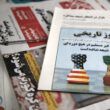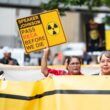Nuclear cooperation deals should be an Obama priority
By Bulletin Staff, January 7, 2009
Soon after taking office January 20, President Barack Obama and his team will have to decide what to do about two recently negotiated U.S. bilateral nuclear cooperation agreements.
One is a nuclear cooperation deal with Moscow that President George W. Bush withdrew from congressional consideration after the Russia-Georgia conflict in August. The other is a landmark deal with the United Arab Emirates (UAE) that was initialed in November and is expected to be signed any day. Approving both of them would provide significant foreign-policy benefits to the United States. Moving forward on the U.S.-Russian nuclear deal could provide a boost to relations as the two countries square off over missile defense, a follow-on to START, Georgia, and Europe’s future security structure. For its part, the UAE deal would serve as a powerful counter to Iranian claims that the United States isn’t prepared to extend the benefits of nuclear cooperation to Islamic Middle Eastern countries. Nonetheless, both of them should move forward only if Congress and the new administration take other actions to make them jibe better with broader U.S. nonproliferation policy.
Even before the Georgia crisis, U.S. lawmakers had raised concerns about the Russia deal because they believed that Moscow hadn’t sufficiently reined in Iran’s uranium enrichment and spent fuel reprocessing programs and had continued military cooperation with the country. But to be fair, Russia has dragged its feet in finishing the Iranian light water nuclear reactor at Bushehr and has arranged a fuel-leasing program for the reactor to mitigate the chances of diversion and to undermine Iranian arguments for providing its own fuel. It has also offered Tehran the possibility of buying a share in its developing multinational uranium enrichment center at Angarsk in Siberia–an offer that Iran has refused. Still, Russia has been a major obstacle to tougher U.N. Security Council sanctions on Iran, arguing instead that Washington needs to participate in direct diplomacy with Tehran.
Now that the Obama administration seems prepared to engage in more diplomacy, it only seems fair of Congress to insist that Russia do its part by exerting greater pressure on Tehran if Iran doesn’t take U.S. diplomatic initiatives seriously. In this regard, legislation approved last year by the House Foreign Affairs Committee is a good starting point. It would require the president to certify that Russia is preventing nuclear materials and other highly sensitive goods from being transferred to Iran, aside from what is needed for the Bushehr reactor.
That legislation also included a particularly valuable provision that would require Congress to first affirmatively approve any decision to grant Russia the right to reprocess U.S.-origin spent fuel. Such a provision would slow dangerous efforts begun in the Bush administration to reverse the global decline in reprocessing, which can produce pure plutonium for nuclear weapons as well as fuel for nuclear power plants. It should be made a permanent amendment to the 1978 U.S. Nuclear Non-Proliferation Act.
The deal with the UAE is moving forward, in part, because that country has promised to enact laws prohibiting reprocessing or enrichment. But as some commentators have pointed out, the agreement itself reportedly doesn’t ban these practices. While few analysts believe that the UAE has any intention of violating this commitment, its representatives are holding up the agreement as the “gold standard” for nuclear cooperation deals, applicable to other potentially more dangerous countries in the Middle East, such as Algeria and Saudi Arabia. One solution, as nonproliferation expert Mark Fitzpatrick argues in a forthcoming Arms Control Today article, would be for the United States and the UAE to strike a side deal in which they agree that Abu Dhabi effectively will hew to this commitment. This, too, should become a standard part of future U.S. nonproliferation policy.
The UAE has been working on addressing other U.S. congressional concerns–i.e., by tightening its export-control laws, given its past history as a hub for the A. Q. Khan nuclear black market network. While further certifications and conditions might well be in order to ensure dangerous goods aren’t flowing through the UAE to Iran, this is probably not reason enough to shoot down the deal, and can be addressed by other means, as Fitzpatrick suggests. For example, the Security Council committee that monitors sanctions against Iran could be given real responsibility and a hands-on role by stationing customs experts in Dubai.
Topics: Nuclear Energy
Share: [addthis tool="addthis_inline_share_toolbox"]













